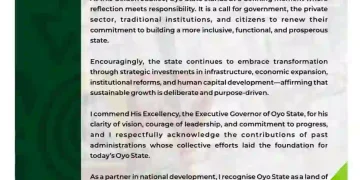The 9-to-5 work culture has long been a cornerstone of modern employment, shaping the way we organize our lives, measure productivity, and define success. Originating during the Industrial Revolution, this rigid schedule was designed to optimize factory output, ensuring that workers clocked in and out at specific times to maintain efficiency. Over time, the 9-to-5 model became synonymous with professionalism, stability, and the “American Dream,” spreading across industries and continents. However, as we navigate the complexities of the 21st century, it has become increasingly clear that this outdated structure no longer serves its purpose.
The Origins of the 9-to-5 Work Culture
The 9-to-5 workday was born out of necessity during the Industrial Revolution, a period marked by the rise of factories and mass production. Labor unions fought tirelessly for standardized working hours to protect workers from exploitation, leading to the establishment of the eight-hour workday. By the mid-20th century, the 9-to-5 schedule had become the gold standard, symbolizing a balanced work-life routine. Offices adopted this model, and for decades, it was seen as the ideal way to structure productivity.
Why the 9-to-5 Model No Longer Works
While the 9-to-5 work culture served its purpose in an era dominated by manual labor and physical presence, the 21st century has ushered in a new reality. The digital revolution, globalization, and shifting societal values have rendered this rigid structure obsolete. Here are some key reasons why the 9-to-5 model no longer aligns with modern needs:
- The Rise of Remote Work and Flexibility
The COVID-19 pandemic accelerated a trend that was already gaining momentum: remote work. With advancements in technology, employees can now collaborate and complete tasks from anywhere in the world. The 9-to-5 model, which emphasizes physical presence in an office, fails to accommodate the flexibility that remote work offers. Studies have shown that flexible work hours lead to higher productivity, job satisfaction, and employee retention. - The Changing Nature of Work
The 21st-century economy is driven by knowledge work, creativity, and innovation—activities that cannot be confined to a strict schedule. Unlike factory workers, whose productivity could be measured by the number of hours spent on the assembly line, today’s professionals often need autonomy to perform at their best. Forcing employees to adhere to a 9-to-5 schedule can stifle creativity and lead to burnout. - Work-Life Integration
The traditional 9-to-5 model assumes a clear separation between work and personal life. However, modern workers increasingly seek integration rather than separation. Parents, caregivers, and individuals pursuing side hustles or personal passions require schedules that adapt to their unique needs. The rigid 9-to-5 framework often creates unnecessary stress and conflicts, making it difficult for employees to achieve a healthy work-life balance. - Globalization and Time Zones
In a globalized world, businesses operate across multiple time zones, making the 9-to-5 schedule impractical. Teams spread across different continents need the flexibility to collaborate asynchronously, rather than being confined to a specific window of time. This shift requires a more dynamic approach to work that prioritizes results over hours logged. - Employee Well-Being and Mental Health
The 9-to-5 model often leads to presenteeism, where employees feel pressured to stay at their desks for the sake of appearances, even when they are not productive. This culture can contribute to stress, anxiety, and burnout. In contrast, flexible work arrangements have been shown to improve mental health and overall well-being, enabling employees to perform at their best.
A Call for Change
The 21st century demands a reimagining of work culture—one that prioritizes outcomes over hours, flexibility over rigidity, and well-being over tradition. Companies that embrace this shift are already reaping the benefits, attracting top talent and fostering innovation.
As we move forward, it is essential to recognize that the 9-to-5 work culture is a relic of a bygone era. By adopting more flexible, inclusive, and human-centric approaches to work, we can create environments that empower individuals to thrive both professionally and personally. The future of work is not about when or where we work, but about how we work—and it’s time to leave the 9-to-5 behind.
Funmilola Faleye is a thought leader in workplace innovation and organizational culture, passionate about redefining the future of work for the 21st century.

Funmilola Faleye is a Digital Marketing Specialist, with SEO and word press proficiency, also, she is an Artificial Intelligence (AI) Enthusiast, Personal Branding, and Public Relations Manager. She writes everything tech and general pop culture. She sees and talks with her pen.





















